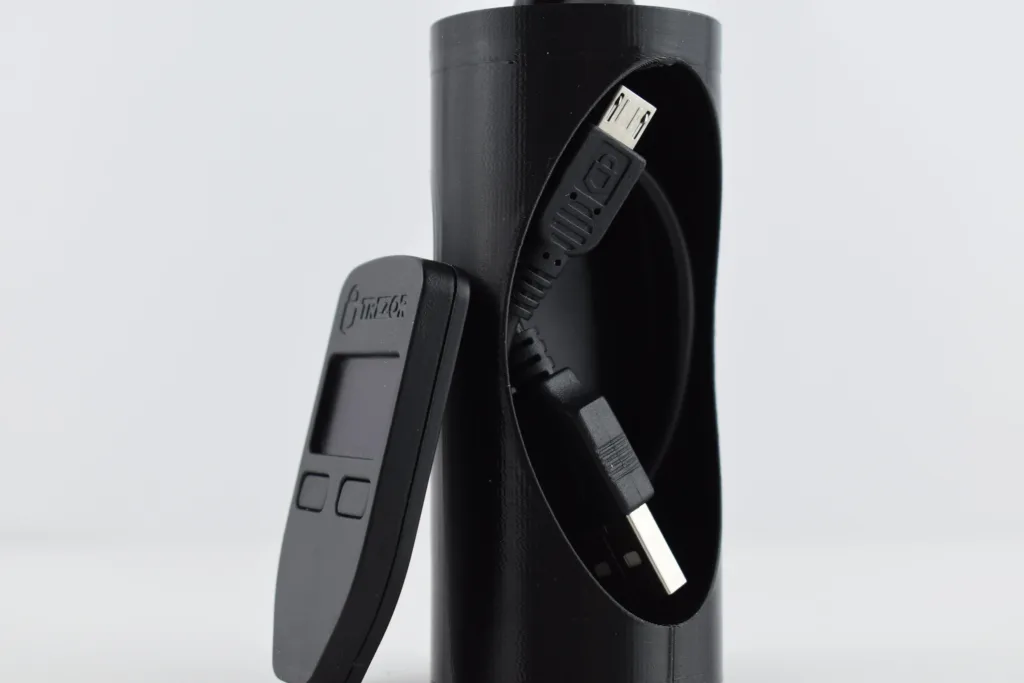What is a hardware wallet for crypto and bitcoin?
- What is a Hardware Wallet?
- Why Hardware Wallets are Safer than Software Wallets
- How to Choose the Right Hardware Wallet
- Best Practices for Using a Hardware Wallet
- The Future of Bitcoin Storage
With the rise of Bitcoin and other cryptocurrencies, the importance of secure storage solutions has become a hot topic among investors. Hardware wallets are widely recognized as one of the safest methods to store your Bitcoin. In this blog post, we’ll dive into what makes hardware wallets unique and explore five key points to consider when choosing and using one.

1. What is a Hardware Wallet?
A hardware wallet is a physical device designed to securely store the private keys that grant access to your Bitcoin. Unlike software wallets, which are connected to the internet, hardware wallets operate offline, making them highly resistant to hacking attempts. Think of it as a digital safe where your Bitcoin’s keys are kept away from prying eyes.
Popular examples include Ledger, Trezor, and BitBox, each offering unique features tailored to different levels of user experience and security requirements
2. Why Hardware Wallets are Safer than Software Wallets
The offline nature of hardware wallets provides a significant security advantage. Here’s why:
- Protection from Malware: Software wallets on computers or smartphones are vulnerable to viruses and phishing attacks. Hardware wallets, on the other hand, don’t expose your private keys to potentially infected environments.
- Encrypted Private Keys: Your private keys never leave the device, even when signing transactions. This ensures hackers can’t intercept them during use.
- PIN and Recovery Features: Most hardware wallets require a PIN for access and offer a recovery phrase (seed phrase) to restore your funds if the device is lost or damaged.
3. How to Choose the Right Hardware Wallet
When selecting a hardware wallet, consider the following factors:
- Reputation and Reviews: Stick to trusted brands with a proven track record. Avoid cheap knock-offs or unknown brands.
- Ease of Use: Some wallets are beginner-friendly, while others cater to advanced users with extra features.
- Supported Cryptocurrencies: Ensure the wallet supports not only Bitcoin but any other cryptocurrencies you may own.
- Backup and Recovery Options: Look for wallets that provide clear instructions and secure ways to back up your funds.
- Price vs. Features: While security is priceless, most hardware wallets are affordable. Weigh the cost against the features you need.
4. Best Practices for Using a Hardware Wallet
Even the best wallet is only as secure as the person using it. Follow these tips to maximize safety:
- Purchase Directly from the Manufacturer: This reduces the risk of tampered devices.
- Keep Your Seed Phrase Safe: Write it down on paper and store it in a secure, offline location. Never share it or store it digitally.
- Update Firmware Regularly: Manufacturers release updates to improve security and add features.
- Stay Vigilant Against Phishing: Always verify you’re interacting with the official software or app for your device.
- Test Before Storing Large Funds: Start with a small amount to ensure you understand how the wallet works.
5. The Future of Bitcoin Storage
As the crypto space evolves, hardware wallets continue to adapt to meet the demands of investors. Innovations like multi-signature wallets, biometric authentication, and decentralized backup solutions are shaping the future of Bitcoin storage. Hardware wallets remain a cornerstone of crypto security, offering peace of mind in an increasingly digital world.

Trezor: Trusted Leader in Crypto Security
Trezor, created by Czech company SatoshiLabs, is a pioneer in hardware wallets, offering secure offline storage for Bitcoin and other cryptocurrencies. Since 2014, their devices, including the user-friendly Trezor One and advanced Model T, 3 and 5, have set industry standards. Known for open-source transparency and robust security, Trezor is a top choice for safeguarding digital assets.